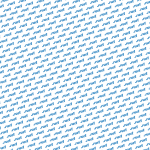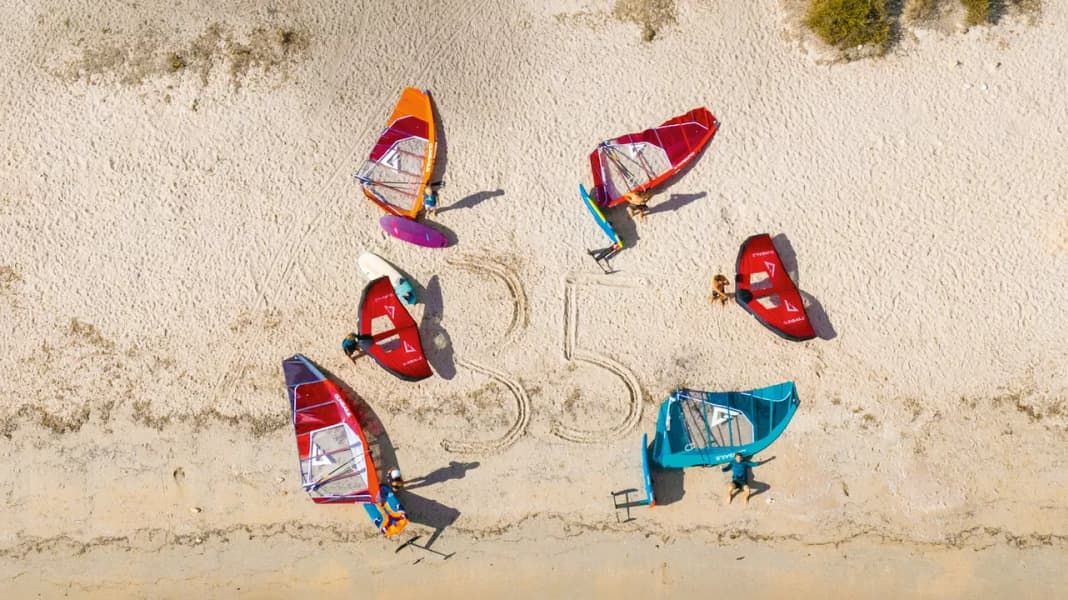
In this article:
In the mid-1980s, there was a gold-rush atmosphere in the surfing industry. The sport was booming, with annual sales of boards and sails running into hundreds of thousands in Germany alone. Every city had at least one large surf shop. Who doesn't remember the giants like Surf Kramer in Munich or Baltic Kölln in Hamburg? During this time, Eberhard von Osterhausen, a self-confessed speed freak, was working on revolutionary sails and boards for new speed records both in and out of the water. The records didn't materialise at first, and the board brand "The Gun Products" - the narrow speedboards were generally called "Gun" at the time - didn't really take off either.
Click through the highlights from 35 years of Gunsails:
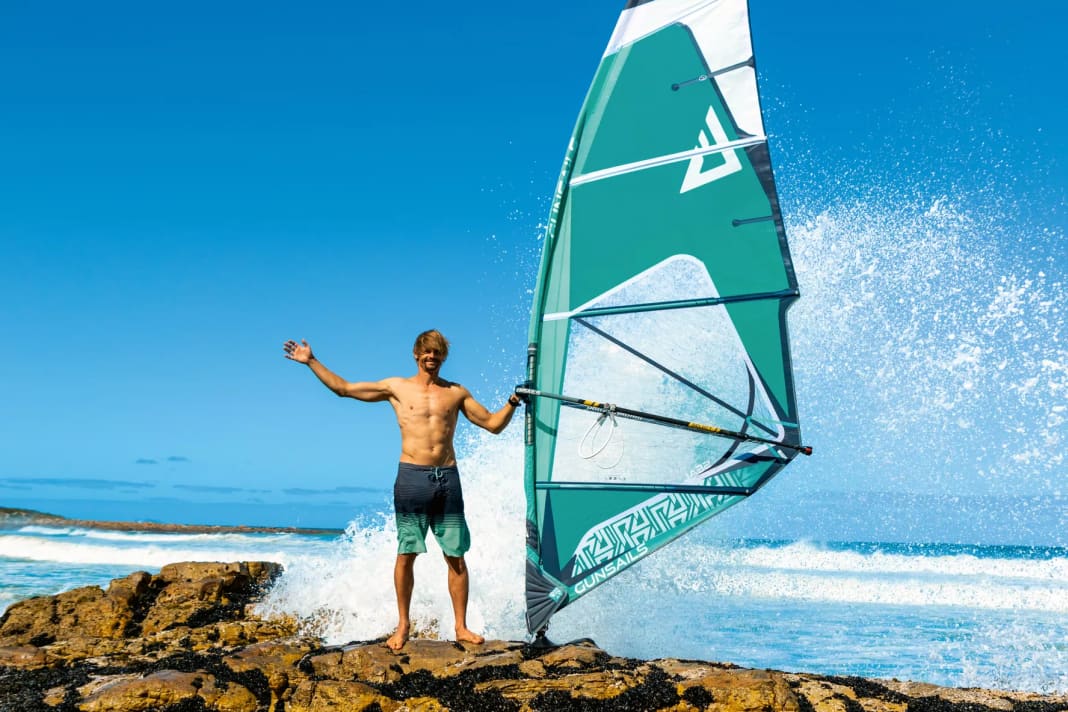





But the idea of selling good windsurfing sails at favourable prices promised to be a success. The calculation behind it: The sails are sent directly to the customer - without going through a middleman or shop. This saves a margin and the manufacturer still earns a good profit at lower prices for the end consumer. But we were still in the pre-Internet era. Neither Amazon or Zalando, nor DHL, Hermes or DPD had been born, the sails were ordered by landline telephone or letter. Advertising was exclusively via adverts in surf magazines.
Despite this, Gunsails took off right from the start and the industry was fuming. The shops in particular feared for their business and some manufacturers left no stone unturned to make life difficult for the young company with the self-confident boss. This included threatening calls to the surf editorial team, telling them not to accept adverts from this company or test products. They were just cheap copies of the top dogs anyway, they said. Now every surf reader for 35 years can see how much success these threats have had: quite the opposite of the company, namely none at all. According to the surf reader survey from 2019, Gunsails is the most sought-after sailing brand on the German market.
But of course, Gunsails' path to the top was not a straight line. The tragic death of company boss and mastermind Eberhard von Osterhausen in an aeroplane crash in 2004 was a major turning point. However, his wife Petra von Osterhausen and the close-knit team from the early days around Jörg Müller and Rainer Sprick as well as sailmaker Renato Morlotti overcame the difficult phase: they continued to drive the brand forward. Since 2016, Petra and Eberhard's son Thilo has also been fully involved in the development of the products and is helping to steer the company in a new direction.
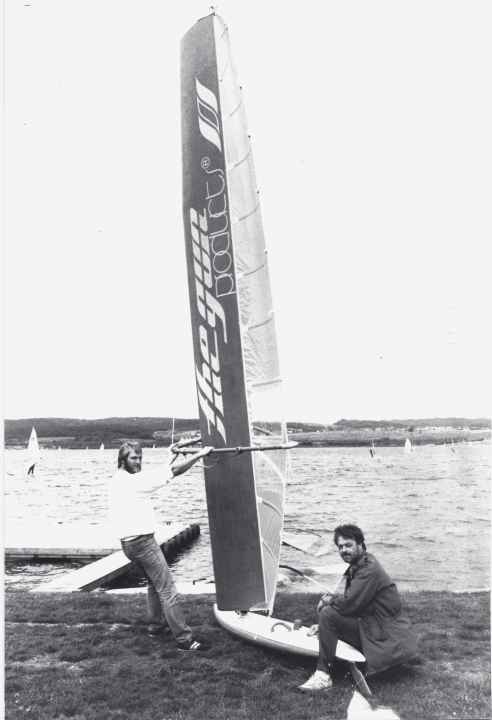
Interview with the Gunsails makers
We met Petra, Jörg and Thilo for an interview and talked about the wild and difficult early years, the secret of success, the importance of a professional team and the challenge of sustainable products.
Petra, you accompanied Eberhard from the very beginning of the company. What was that like?
Eberhard was introduced to windsurfing by the great Fred Ostermann. Eberhard was particularly fascinated by speed and experimented with guns and special sails that looked more like a wing. In 1987, he founded the company "The Gun Products" and initially wanted to concentrate on boards. However, he quickly realised that this was a difficult business - especially when it came to shipping. His idea was to sell windsurfing products directly. So the business developed more in the direction of sails, and "The Gun Products" became "The Gun Sails". Eberhard then found a small sail factory in Holland where a young man was just starting production. We had no idea whether we would sell anything. And then came the first advert in surf magazine: tiny and in black and white, just saying "call to order". The day the magazine came out, Eberhard asked: "I wonder if anyone will call? What can I say? We didn't have the infrastructure to cope with the huge wave that came over us.
Did that also apply to production?
Initially, it worked very well in Holland, but demand quickly exceeded the capacity of the small factory. We then thought long and hard about whether we should go to China. At that time, the country was nowhere near as developed as it is today, so it was a big risk for us. We then went to a well-known manufacturer, and Eberhard then spent around two months in China every autumn developing the new sails with the technicians. Here's a little anecdote: When we were waiting for the first container from China for our first stand at boot Düsseldorf, Eberhard was extremely nervous. He had heard stories that the containers sometimes contained something completely different from what we had ordered. We had just got married, but Eberhard then decided to fly to China in December to check that the right goods were in the container. Instead of going on his honeymoon with me.
In the early years, there were repeated accusations that you were copying the sail designs of successful brands at the time. But since you have been working with Renato Morlotti as a sail designer, this accusation has long since fallen silent. On the contrary, you have brought many innovations.
We have been working with Renato for 24 years and he was an absolute stroke of luck. Eberhard had already noticed his talent on his first visit to him in Milan and immediately signed him. Since then, the team around him in Tarifa has been working extremely hard and successfully. The many good tests also show this - which of course makes us happy.
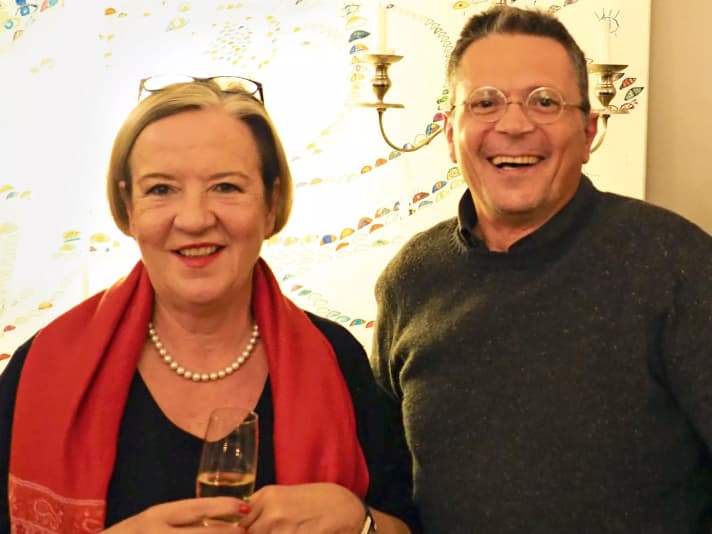
Has this also changed your standing in the industry?
Jörg: Definitely. You can also see that at events like the surf festival on Fehmarn. Twenty-five years ago, they wouldn't even have lent us a broom, and today we have a pretty good relationship and are seen as an equal brand. That has changed a lot.
Eberhard died in an aeroplane accident in 2004. How did this tragedy change your role at the company?
I've always been in management, but not so much in operations. As a lawyer, I always weighed everything up and drew up lists of pros and cons. Eberhard was a very courageous guy and made decisions very quickly. We complemented each other very well. But I always knew what my job would be when the patriarch - that's what I call him - was no longer there. Eberhard travelled a lot, flew all over the world and had a very dangerous hobby, flying. It would have been naïve of me not to have been prepared for such a moment in some way. Despite the shock, we had to carry on with the company the next day. We then met up with Jörg and Rainer Sprick and discussed how to proceed.
Jörg: Petra said - many years before Angela Merkel - that if we all stick together, we can do it. For all of us, it was of course a shock and completely incomprehensible that Eberhard was no longer there and wouldn't be coming back. I had already been working sporadically for Gunsails since the early 90s and in 1995 Eberhard hired me as Sales Manager straight after my business studies. He was therefore more than just a boss to me, he was my mentor and also a friend. But I was familiarised with all the processes, I knew all the producers and was therefore able to carry on straight away. We were all determined to continue Eberhard's life's work successfully.
The inner circle of Gunsails also includes Rainer Sprick and Thorsten Heu. How are the tasks distributed among you?
Jörg: Yes, the three of us have been Gunsails for almost 100 years Rainer is mainly responsible for purchasing and production. Thorsten looks after the website and is also responsible for social media, and of course he attends a lot of events. And I'm primarily responsible for marketing. But we can always help each other out, that's just the way it is in a family business.
Petra: And not to forget: You developed the first online shop for us.
Jörg: That's right, we were there very early on. After all, this is extremely important for a direct mail order company. Without a good online shop and a functioning merchandise management system, none of this would be possible today.
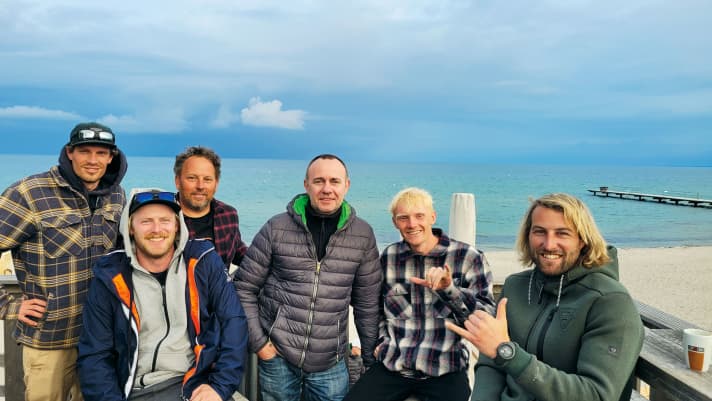
How has Gunsails developed since Eberhard's death?
Petra: I don't want to say that I brought a more feminine touch to the brand, but I already had my own ideas. I was of the opinion that there was a lot more potential in the brand. My aim was to make the products even more valuable - without it costing more money. Together with Nils Patrick Geiselbrecht, I also broke new ground with the designs and used colours that made many people say: How can you do that? And the next year, one of the top brands had the same colour. I also put more effort into putting together the driver team and, for example, did the photo shoots at locations closer to our customers in Europe - it doesn't always have to be Maui. I also broke new ground with Renato by introducing a computer design programme. Even if he didn't really like it at first. I have to feel it with my fingers, he used to say to me.
What else has changed in recent years? And what has remained the same?
Thilo:For me personally, the re-branding, i.e. our logo change and redesign in 2018, was a significant milestone. For me, Gunsails had the appearance from then on in which I could realise my vision. What has remained is the family spirit that Eberhard has always lived in the company. We still do that today, be it in the company here in Saarbrücken. Or with Renato and his team and our team riders.
What is your general attitude towards team riders, what do they need to bring to the table?
Jörg: First and foremost, they have to suit us. Of course, they should also deliver good results, but we don't keep a tally sheet or success curves. What is more important to us is long-term cooperation and that they also share the company's values.
Thilo: However, it is also important that our team budget does not become too large. We invest in our development and our products and ultimately our customers should benefit from this. An expensive superstar would simply not fit into our company concept or pricing strategy.
Gunsails not only has the family spirit, but is also a pure family business. And with Thilo, the company is now in its second generation. Are you pleased that Thilo has chosen this path?
Petra: A resounding yes, of course. Thilo grew up in the surfing world, he was everywhere. At photo shoots on Maui, at speed events on Fuerte and at trade fairs. He watched Renato making sails from an early age and, like his father, has a keen interest in technology and enjoys tinkering. Eberhard had a few patents, and Thilo already has some. He has also been active in the company since around 2016 and has graduated as an industrial engineer. He is responsible for product development. As far as the basic direction of the company is concerned, we pretty much agree. Of course, there are also discussions and friction. But that's normal. Thilo has a lot of ideas, he takes after Eberhard, but he takes a much more considered approach.
Thilo (laughs): Can you please send me the extract from the interview later?
You grew up in the windsurfing world, Thilo. But you have a different, successful sporting past. Windsurfing wasn't always the number 1 sport.
Windsurfing may not have been the only sport, but it was always present in my youth. I took my first surfing course at the age of three, and from there my passion for windsurfing and board sports developed. You could say it was my ticket to fun sports. Since then, I've practised almost every board sport and have also discovered foiling in recent years. In my development, it's important to me that I can judge and test all the products we sell myself. But yes, snowboarding was not only the number one sport during my studies at the Technical University of Munich, but also my part-time job. After my own competitions and sponsorships, I coached the national freestyle team for a few years to finance my summer holidays by the sea. With our surfboard brand KANOA, my enthusiasm for surfing is obvious. Nevertheless, the brand is also part of the Gunsails corporate strategy and is closely linked to my development in the composites sector.
Was it always clear to you that you would join the family business?
It was always clear to me that my place was at Gunsails - and I chose my degree in industrial engineering accordingly. I was part of the Gunsails family from an early age, attending many trade fairs and events, and I was already in close contact with our employees and business partners during my studies. I was therefore able to gain various insights and experiences even before my active involvement. I have also always had a good relationship with Renato and have been to Tarifa regularly.
Through my time in snowboarding, I gained a wide range of insights into a neighbouring industry and was able to get to know the sport from the perspective of athletes, a coach and the industry. These are experiences that still help me a lot today and have given me a holistic understanding of the individual players in a sport and an industry.
In which direction would you like to develop the company?
The path I want to take and the direction we want to go in have already been set since I joined the company. I am building on my mother's vision and see Gunsails as a brand. Our products and our service should stand for themselves, and the added value of our sales structure should also be recognised above and beyond our price. Direct contact and exchange with the brand, direct customer feedback for our further development. Fast, uncomplicated handling of all our customers' concerns, simply everything from a single source.
At the same time, I attach great importance to our broader and more diversified positioning, which is how the KANOA surfboard brand and the new HY-Wing and HY-Foil categories came about, for example.
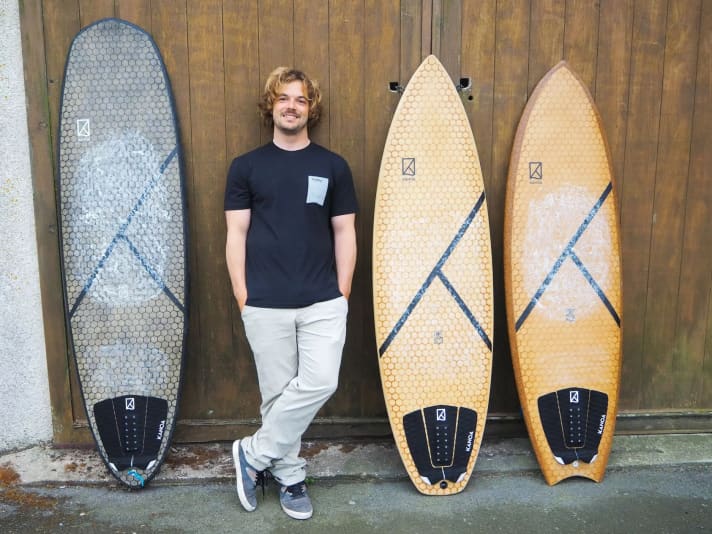
Direct sales was and is a great unique selling point. However, we must not rest on our laurels, but must continuously work on the further development of our products and our service. It is very important to me to regularly bring innovations to the market; I love the challenge of scrutinising things. To do things differently and, above all, better. Sustainable product design has become a basic principle for me.
There aren't many second-generation family windsurfing businesses. Is that a privilege or rather a burden for you?
It is a huge privilege for me to be able to build on this foundation. And I really appreciate the groundwork and dedication of my family and our team. Nevertheless, it remains a great responsibility and a clear commitment, but I am happy to accept both.
My overriding goal is to orientate the company in a future-oriented, sustainable and, above all, secure manner. One major advantage here is the independence and flexibility that our family business brings with it. We can follow our vision and drive forward the things that we consider most important for us and our customers, and we don't have to answer to any investors. However, we also have to take responsibility if our decisions go wrong.
In the company itself, it is incredibly nice to see the commitment of our employees, which is certainly a big part of our success. I think it is very rare to see such intrinsic motivation and identification.
However, it takes a lot of discipline and objectivity to draw a clear line between friendship and business in what is usually a close friendship or family relationship. But this is also a skill that we have acquired together with our team
You have started to produce windsurfing products more sustainably. Have you been instrumental in driving this forward? And where is the journey heading?
Yes, this change comes from me, and we will continue to build on this. I have been pursuing this approach for a long time in my composite development in surfboard construction. There, I tried to replace conventional materials with natural or recycled alternatives. We are now gradually transferring this approach to our windsurfing products. The Re-Seal is just the beginning. The next sails made from recycled material are already almost
ready for series production. We also have very interesting and promising approaches in board construction. It won't happen overnight - but it will happen.
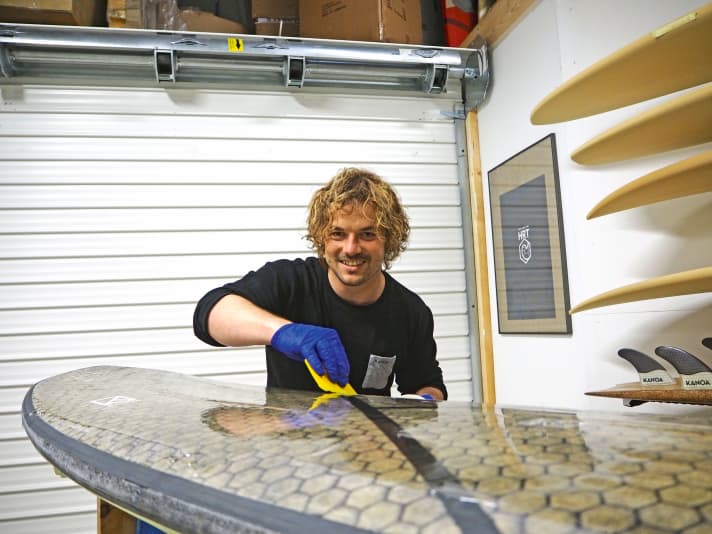
Andreas Erbe
Chief editor surf
Andreas was born in 1962 and grew up in Osnabrück. He became passionate about windsurfing as early as 1974, when he learned to tack and jibe at one of the first surf schools on the Baltic Sea. Lake Dümmer became the favorite playground of his youth for him and his friends. In 1988, he joined Surf Magazin as a tester and later editor and was lucky enough to be able to turn his passion into a career. Andreas has been responsible for the magazine's content as editor-in-chief since 2002. His favorite spots are those on the Danish North Sea and Baltic coasts.
